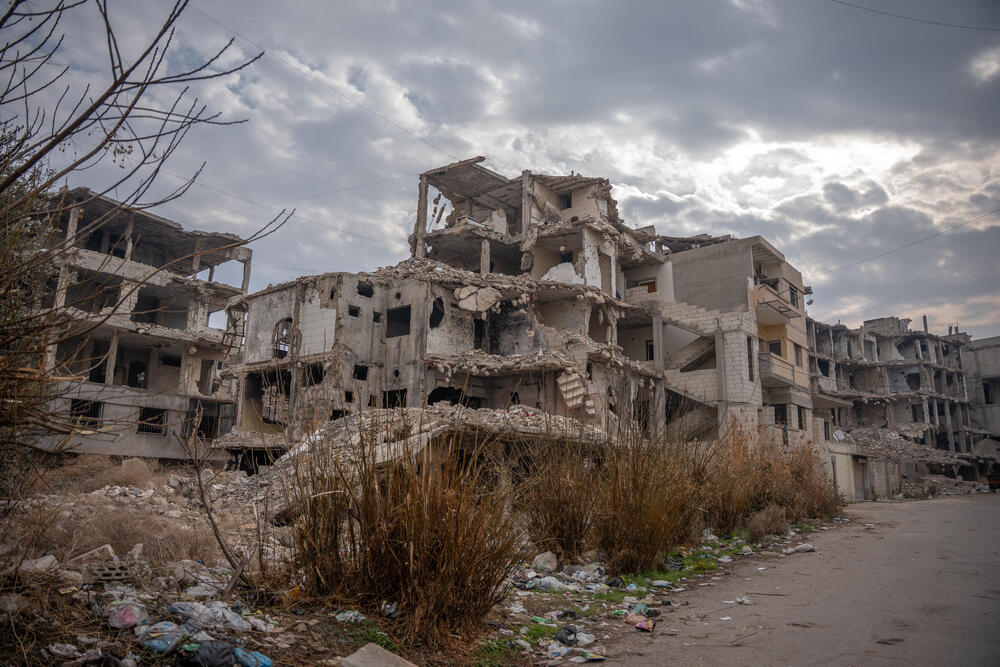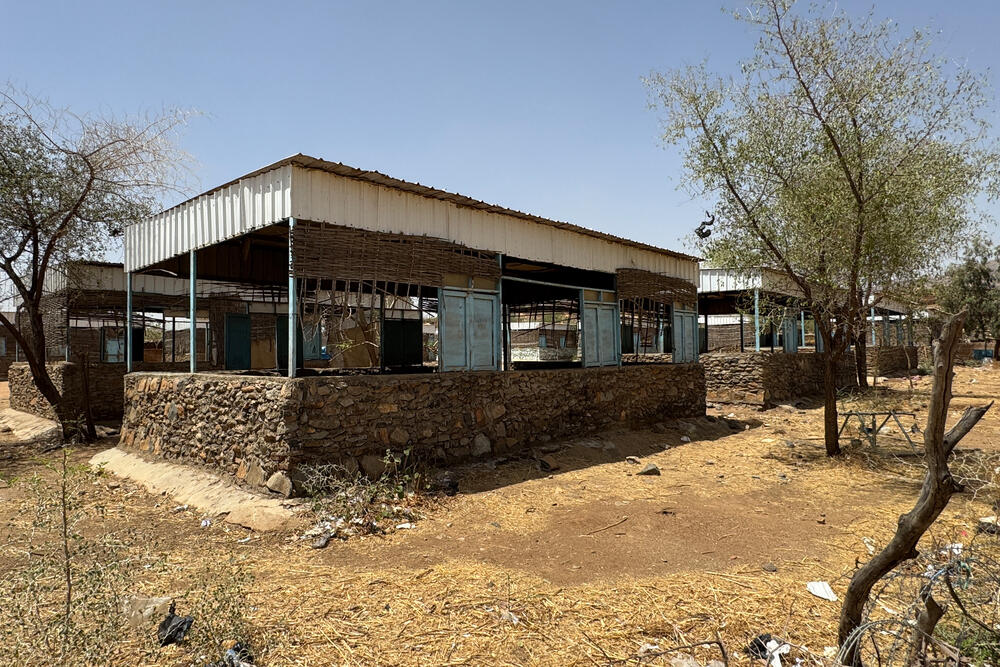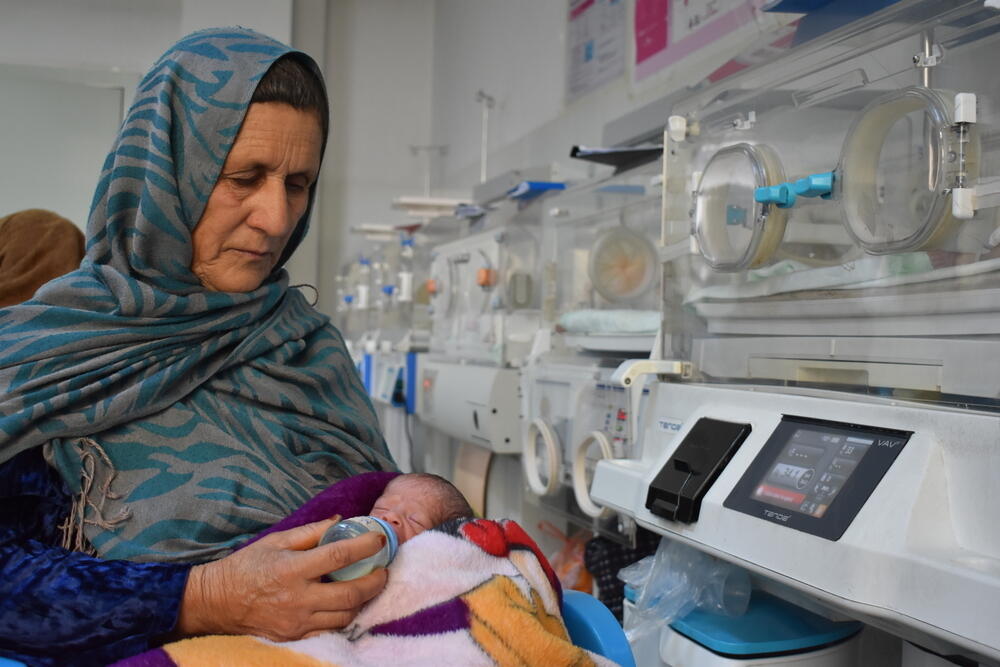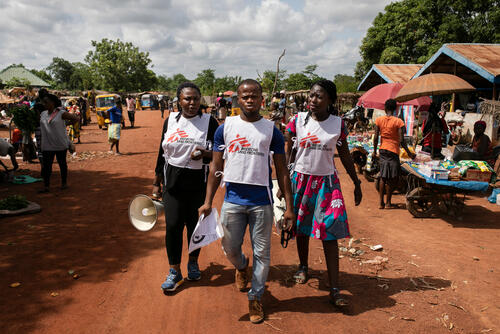Five places UK aid cuts will hit the hardest
Following the Government's July budget announcement, we've now seen more detail on the impact of UK aid cuts. Instead of stepping up to support people in dire need, the UK Government is pulling back – even from places experiencing famine, disease outbreaks, and genocide.
The most substantial reductions are concentrated in fragile and conflict-affected countries, including Palestine, Sudan, Afghanistan, South Sudan, Syria, and Ethiopia.
Some of these countries were expected to be shielded from deep cuts due to their strategic importance and specific vulnerability. These are precisely the places where aid is most needed and has real impact.
Will MSF be affected by the UK aid cuts?
MSF is an independent, neutral and impartial organisation: we don't take any funding from the UK Government. However, we have a duty to bear witness to the impact of aid cuts in the countries where we work, especially as our independent funding means we become one of the only humanitarian organisations still able to operate in some places.
1. Sudan – 18% reduction
In April 2023, as conflict spread across Sudan, international NGOs, including the UN, withdrew from Sortoni in North Darfur. The camp was abandoned at the same time as thousands of new arrivals were seeking refuge.
Since then, no aid organisations have returned – except MSF. Our teams support the only medical facility available for the 55,000 camp residents and nearby villages, providing basic consultations, maternity services, and referrals to a hospital in Rokero, three hours away.
Today, residents walk past the remains of infrastructure left behind: empty distribution points and water taps standing dry. People continue to arrive, but nothing is being rebuilt.
The humanitarian response across Darfur has been called a failure. In Sortoni, it feels even more striking because of how much had once been done there.
“Our people have been forgotten,” says Suad, from the camp’s women’s committee. “They left us alone in a desperate situation.”
2. Afghanistan – 19% reduction
In April this year, nearly 14,000 children under the age of five were seen in the emergency room (ER) at Boost Hospital in Afghanistan – the highest monthly number of ER consultations since at least 2020.
Finding the space, time and resources to treat the growing number of children is a challenge. They arrive with life-threatening conditions like sepsis, respiratory failure, and severe malnutrition.
This increase in paediatric patients is not just happening in Helmand, though. Health facilities are facing similar pressures elsewhere in the country.
Since US foreign aid was halted earlier this year, some 422 health facilities in Afghanistan have suspended their activities or closed their doors. This has affected healthcare access for more than three million people as of 10 June, according to the World Health Organization. UK cuts will only make the situation worse.
“As these facilities close or reduce their activities, people will have to wait longer or travel further to receive treatment,” says Julie Paquereau, a medical coordinator with MSF in Afghanistan.
“Lack of access will push more babies and children with life-threatening conditions to already overburdened provincial and regional hospitals, including the ones that MSF supports. And some may never access care, unable to reach a health facility.”
3. Occupied Palestinian Territories – 21% reduction
MSF field teams report delayed interventions, blocked roads, and escalating needs across all of the West Bank.
For the last 12 months, most new patients coming to MSF clinics in Hebron for mental health support were admitted as a result of violent incidents. In June 2025 alone, this was the reason for 94 percent of the admissions.
In Hebron, MSF is responding to the emerging needs of people in the Bedouin communities of Masafer Yatta. Mobile clinic teams provide basic healthcare and mental health support to people who are affected by settler attacks, including children, women and elderly people. MSF teams also support Palestinians who have been forcibly displaced due to the settler violence and home demolitions.
Access to affected communities, however, remains significantly limited because of the increased security concerns. Israeli military checkpoints and the 12-day war between Israel and Iran have made the security situation even more precarious.
4. Ethiopia – 25% reduction
Living conditions for refugees in Ethiopia’s Gambella region are rapidly deteriorating following significant cuts to humanitarian aid in the region. Global reductions are already straining basic services such as food distribution, healthcare, access to clean water, and sanitation services.
The decline in funding has led to the suspension of nutrition services in four out of the region's seven refugee camps, leaving around 80,000 children under the age of five at risk of life-threatening malnutrition.
Funding cuts have also caused disease-prevention activities – such as malaria prevention programmes – to be downsized.
As malaria is endemic in the region, MSF’s team is anticipating a sharp increase in the number of malaria patients during the rainy season, which lasts from May to October.
“MSF is working at full capacity, but the scale of needs in Kule [refugee camp] far exceeds what we can address alone,” said Birhanu, MSF’s deputy medical coordinator.
5. Syria – 35% reduction
The fall of the former government of Syria on 8 December 2024 was a significant turning point in the country after nearly 14 years of war.
MSF has now gained access to areas previously inaccessible under the former government, where we were not authorised to work.
The direct and indirect consequences of conflict are stark, with 16.5 million people in need of assistance, and widespread humanitarian needs.
People’s health needs in Syria have gone unmet for well over a decade even in areas indirectly affected by conflict. During the war, health facilities were systematically damaged or destroyed, leaving Syrians today with little to no access to healthcare in some places, especially in rural areas.
As a result, this year MSF teams have expanded operations in the country, but the immense needs are beyond the ability of one organisation to respond.
Help us speak out on UK aid cuts
Share and like our post on Instagram:



